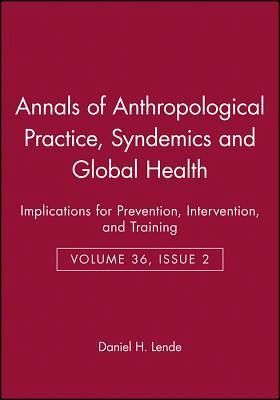
Syndemics and Global Health
Implications for Prevention, Intervention, and Training
Herausgeber: Lende, Daniel H
Versandkostenfrei!
Versandfertig in über 4 Wochen
25,99 €
inkl. MwSt.

PAYBACK Punkte
13 °P sammeln!
The health of populations around the world is being impacted by the development of syndemics. A syndemic is a set of enmeshed and mutually enhancing health problems that, working together in a context of noxious social and physical conditions, can significantly affect the overall disease burden and health status of a population. Defined more precisely as the concentration and deleterious interaction of two or more diseases or other health conditions in a population, especially as a consequence of social inequity and the unjust exercise of power, syndemics appear to have played an important rol...
The health of populations around the world is being impacted by the development of syndemics. A syndemic is a set of enmeshed and mutually enhancing health problems that, working together in a context of noxious social and physical conditions, can significantly affect the overall disease burden and health status of a population. Defined more precisely as the concentration and deleterious interaction of two or more diseases or other health conditions in a population, especially as a consequence of social inequity and the unjust exercise of power, syndemics appear to have played an important role in human disease history (and hence more generally in human history), continue to have a significant impact on diverse populations globally, and are likely to influence the human (and animal) health profile of the future. As a result the syndemics concept, which developed within anthropology, has received a growing level of attention in public health, biomedicine, and in other disciplines that focus on the health effects of social and environmental conditions. Syndemics researchers, like those whose articles appear in this issue, seek to understand the nature of syndemics, the actual biological or other pathways of disease interaction, the ways in which social relations and condition promote disease clustering and interaction, and approaches to prevention or responding to a syndemic.












